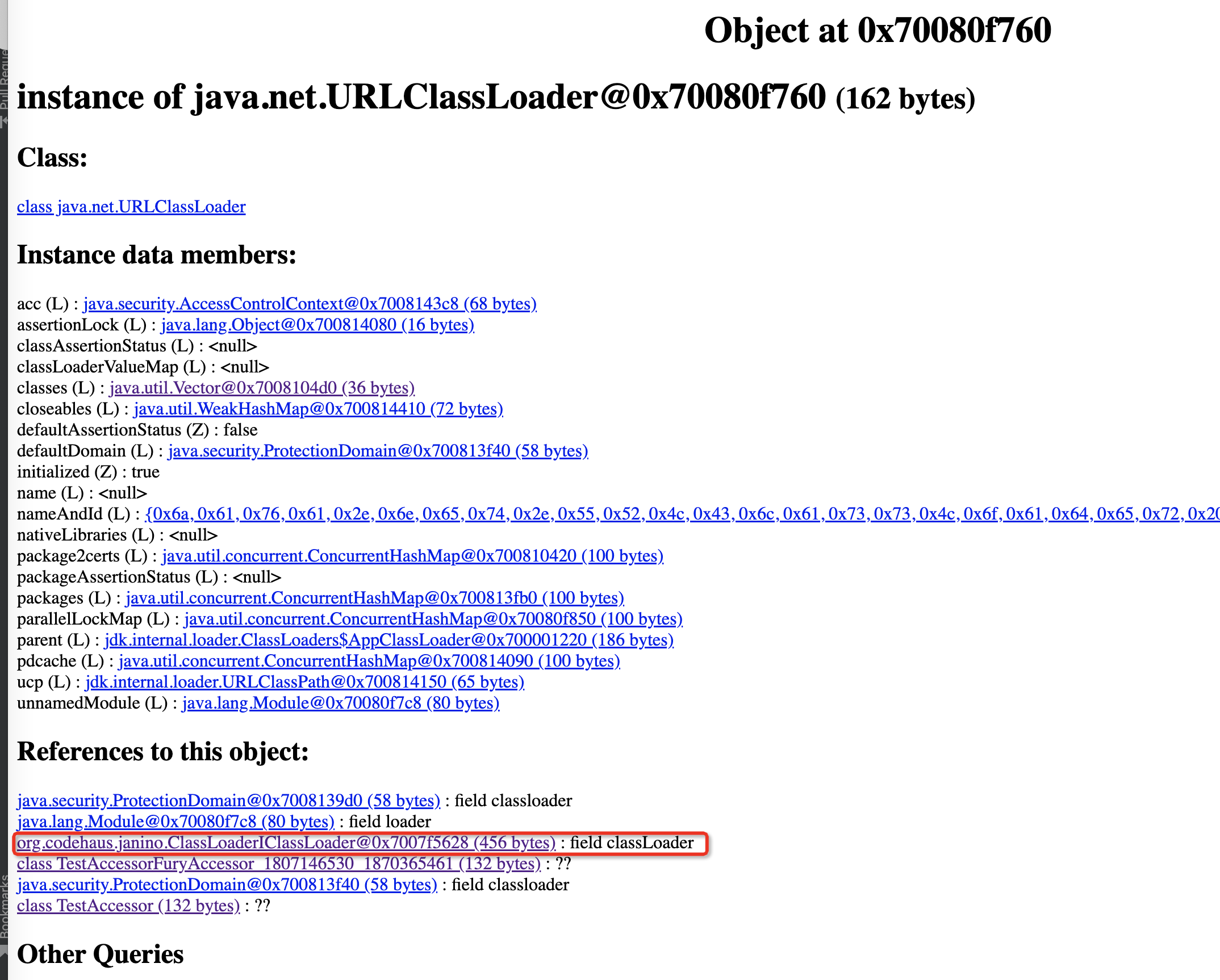Hey Shawn,
your handling of the class loaders is a bit unorthodox and may the reason for the resource leak: If this code
byte[] byteCodes = classes.entrySet().iterator().next().getValue();
ClassLoaderUtils.tryDefineClassesInClassLoader("B", dep, dep.getClassLoader(), byteCodes);
Class<?> cls = dep.getClassLoader().loadClass("B");does what its name implies, the you define the Janino-generated class "B" in the class loader that loaded class "A", which is a no-no. You should instead create another class loader
Class<?> cls = new ByteArrayClassLoader(classes).loadClass("B");, and, as far as I can see, there is no resource leak:
Wait cls null gc.BTW: The Eclipse compiler issues a warning "Resource leak: '
Class<?> clz = new URLClassLoader(
new URL[] { Paths.get(".").toUri().toURL() },
Struct.class.getClassLoader()
).loadClass(classname);That smells like a resource leak, too...
Can you please check whether the proposed code change fixes the problem?
Issue
When using
org.codehaus.janino.Compilerto compiler a class which reference a class inURLClassLoader, and load the compiled byte code into theURLClassLoader, janinoorg.codehaus.janino.ClassLoaderIClassLoaderwill leak, which lead the generated classes andURLClassLoadercan't be gc.The class can be gc when I set
classLoader/loadedIClassesinClassLoaderIClassLoaderto null. But I don't know why. Maybe we should makeloadedIClassesvalue as weak ref, or add aclearmethod toClassLoaderIClassLoader,I can submmit a PR if needed, but why the classloader can't be gc when we don't clear
ClassLoaderIClassLoader.Version
Reproduction code